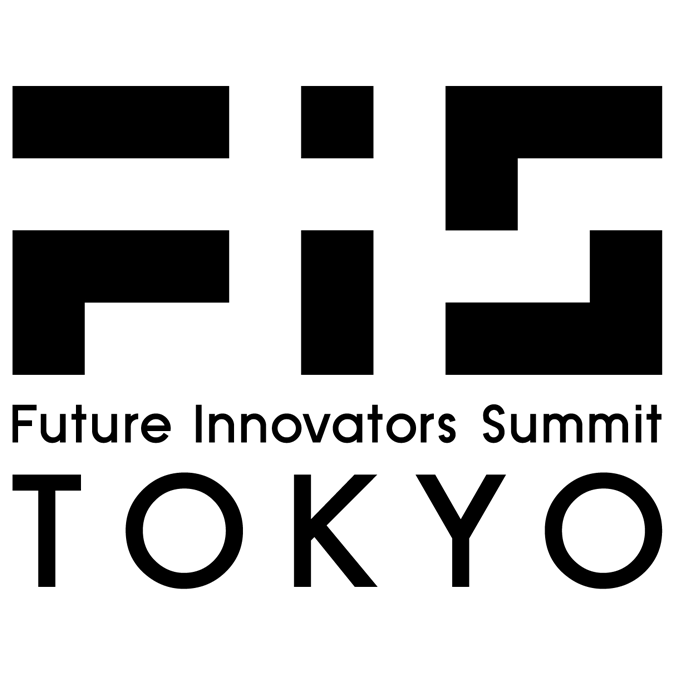- Events
Tokyo as a Laboratory for our Future
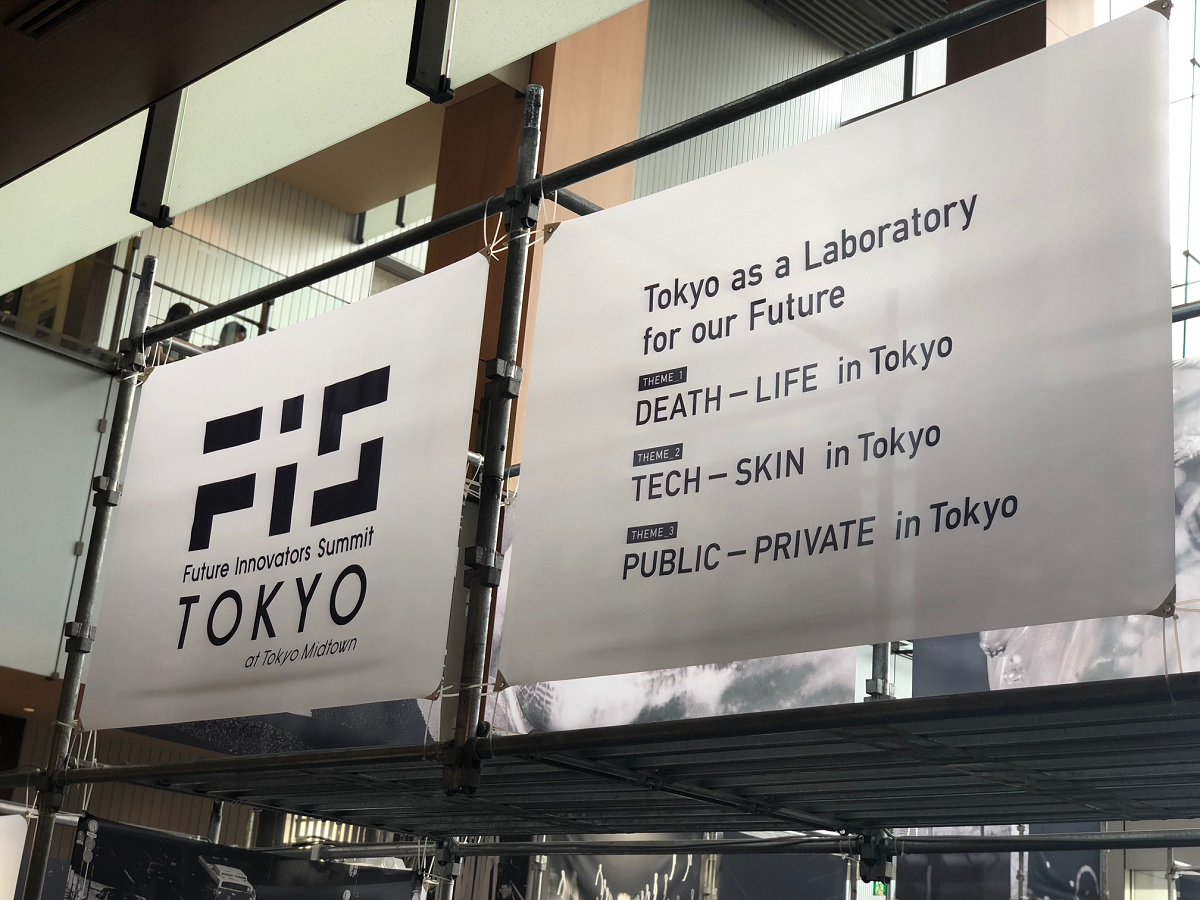
Future Innovators Summit TOKYO was held at Tokyo Midtown across the three days May 25–27, 2018.
An experience-based discussion program jointly developed by Hakuhodo, Future Innovators Summit (FIS) has been bringing together artists, designers, scientists, engineers, entrepreneurs, philosophers and other innovators with different backgrounds and expertise from around the globe as a “living think tank” to formulate Creative Questions (big questions for the future) at the Ars Electronica Festival in Linz, Austria since 2014.
The first FIS to be held in Tokyo, FIS TOKYO considered what is necessary to truly solve social issues in a country like Japan, a country leading the way in facing challenges. It revisited socially recognized challenges from the Creative Question program, and addressed these questions from the perspectives of companies, artists, innovators and citizens. Fourteen innovators from six countries participated this year.
The event comprised three main programs: an art and prototype exhibition, a discussion program and a talk session.
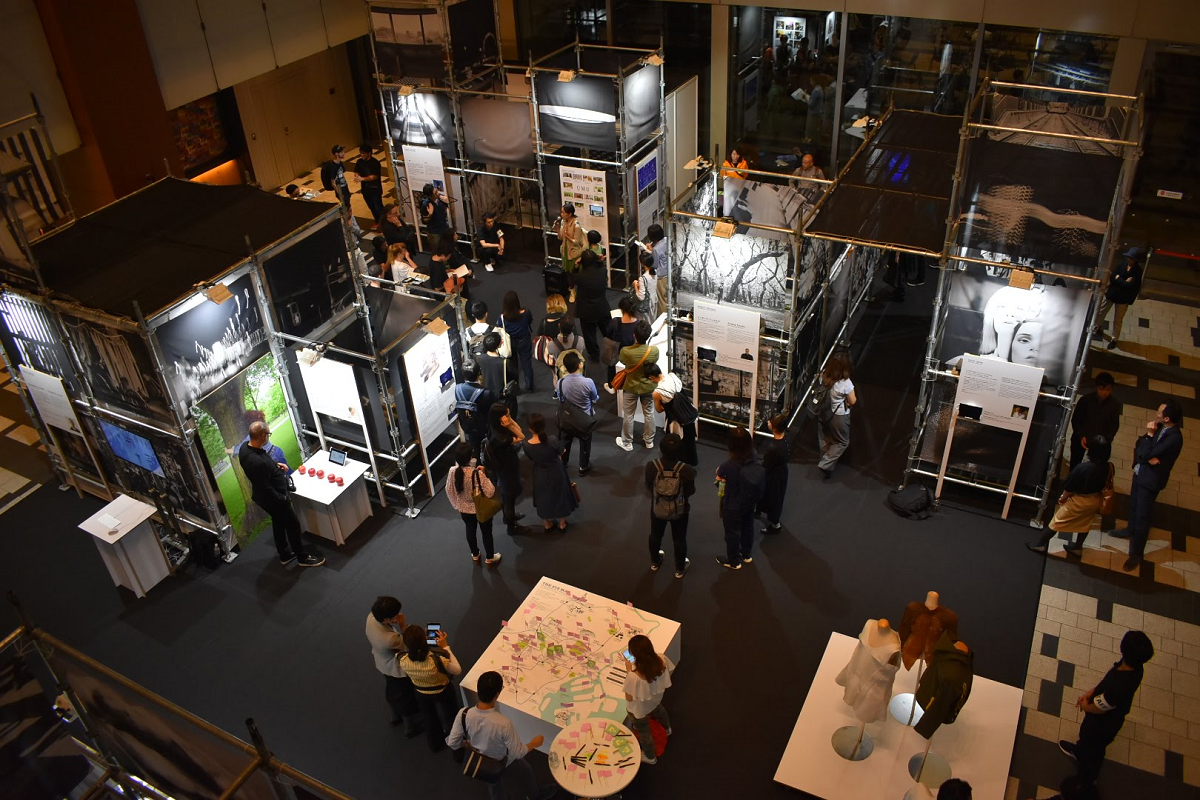 Art and prototype exhibition in the B1 Atrium at Tokyo Midtown. Many shoppers and others who just happened to be there stopped by.
Art and prototype exhibition in the B1 Atrium at Tokyo Midtown. Many shoppers and others who just happened to be there stopped by.The art and prototype exhibition featured works, activities and projects of innovators participating in FIS TOKYO as well as prototypes for the future from the corporate world. The stimulating works, which excited various feelings in viewers, from surprise to discovery to empathy, provided opportunities to consider the three FIS TOKYO themes this year: DEATH-LIFE in Tokyo, TECH-SKIN in Tokyo, and PUBLIC-PRIVATE in Tokyo. Set up at the center of the venue was The FIS MAP, a map for sharing ideas about making Tokyo better, where visitors also wrote their thoughts onto flags.
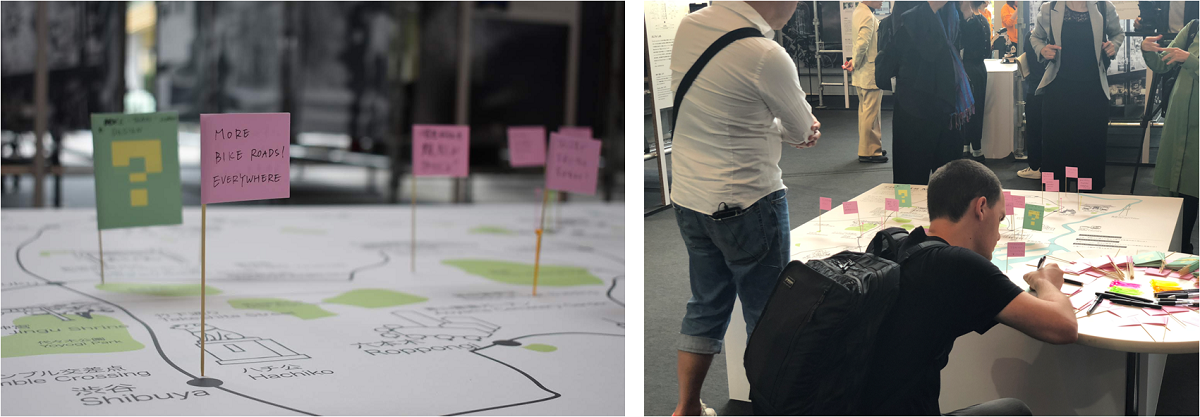 The FIS MAP, a map for sharing ideas for making Tokyo better. Many visitors wrote their ideas.
The FIS MAP, a map for sharing ideas for making Tokyo better. Many visitors wrote their ideas. “Regenerative Reliquary” by Amy Karle / “Exhausting a Crowd” by Kyle McDonald
“Regenerative Reliquary” by Amy Karle / “Exhausting a Crowd” by Kyle McDonaldA talk show was held on the first day of the event in the courtyard, an outdoor space.
At the opening session Ars Electronica’s artistic director Gerfried Stocker, Yuko Ishiwata of Arts Council Tokyo, and Hakuhodo director & senior corporate officer Masaru Kitakaze took to the stage to talk about their hopes and expectations of the event.
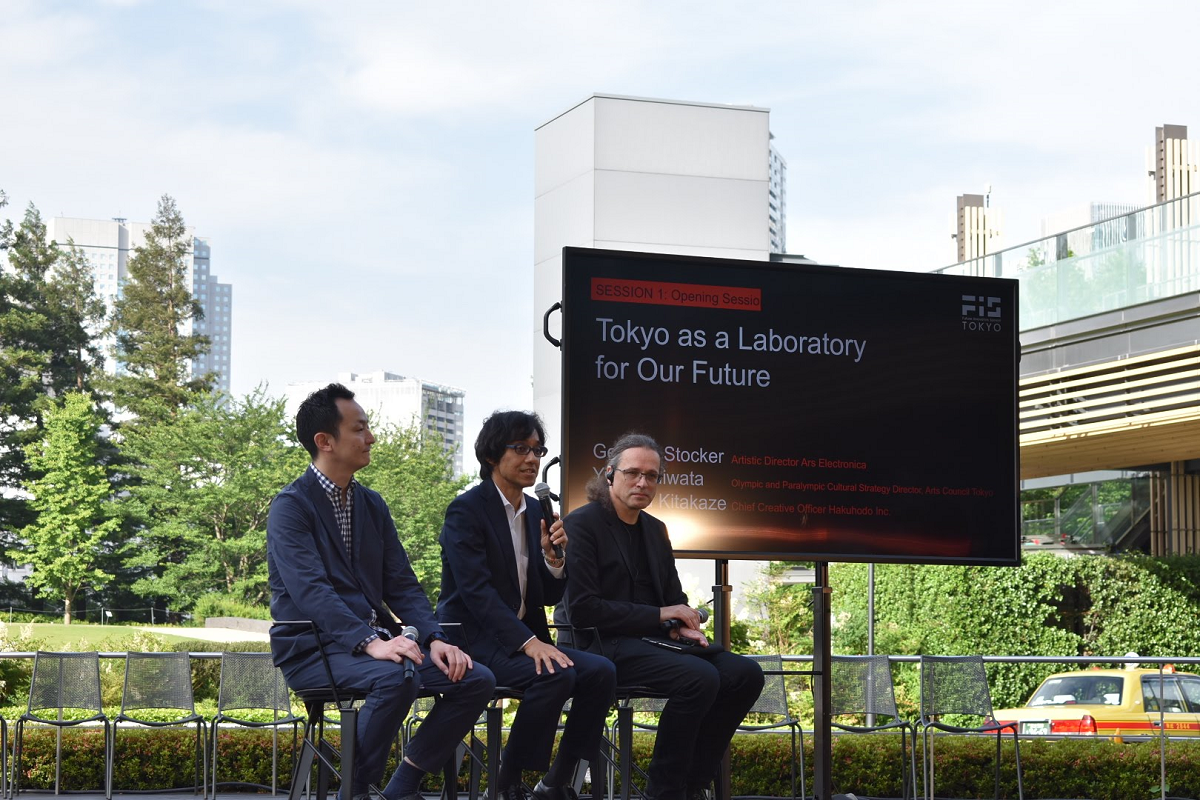 Gerfried Stocker, Artistic Director, Ars Electronica (right), Masaru Kitakaze, Director & Senior Corporate Officer, Hakuhodo (center)
Gerfried Stocker, Artistic Director, Ars Electronica (right), Masaru Kitakaze, Director & Senior Corporate Officer, Hakuhodo (center)Kitakaze described the value of FIS TOKYO from the viewpoint of a collaboration between art and industry as follows: “The senior management of companies realized the necessity of art and art direction to business administration a few decades ago, but they had on-going trouble knowing how to fully leverage art. Some companies took on artists as external directors, but I tend to think that diminishes the power of art. I believe that you won’t be able to solve challenges unless industry’s power to create and art’s power to question are equally balanced. In that sense, FIS has the power to balance the two.
“We have a tendency to look for answers to questions on a one-for-one basis. But I think it’s great to have many answers, and creating an environment where we can all come up with lots of answers to questions posed by artists and innovators is essential, I believe. The FIS artists are not just trying to bring forth answers, I think they are creating a forum for uncovering great answers in the space between questions and answers. With chisels, the artists chip away at raw gemstones containing the seeds of solutions to reveal what’s inside and share it with the world. FIS visitors each experience that and come up with answers from different perspectives. That, I think, is the essence of FIS.”
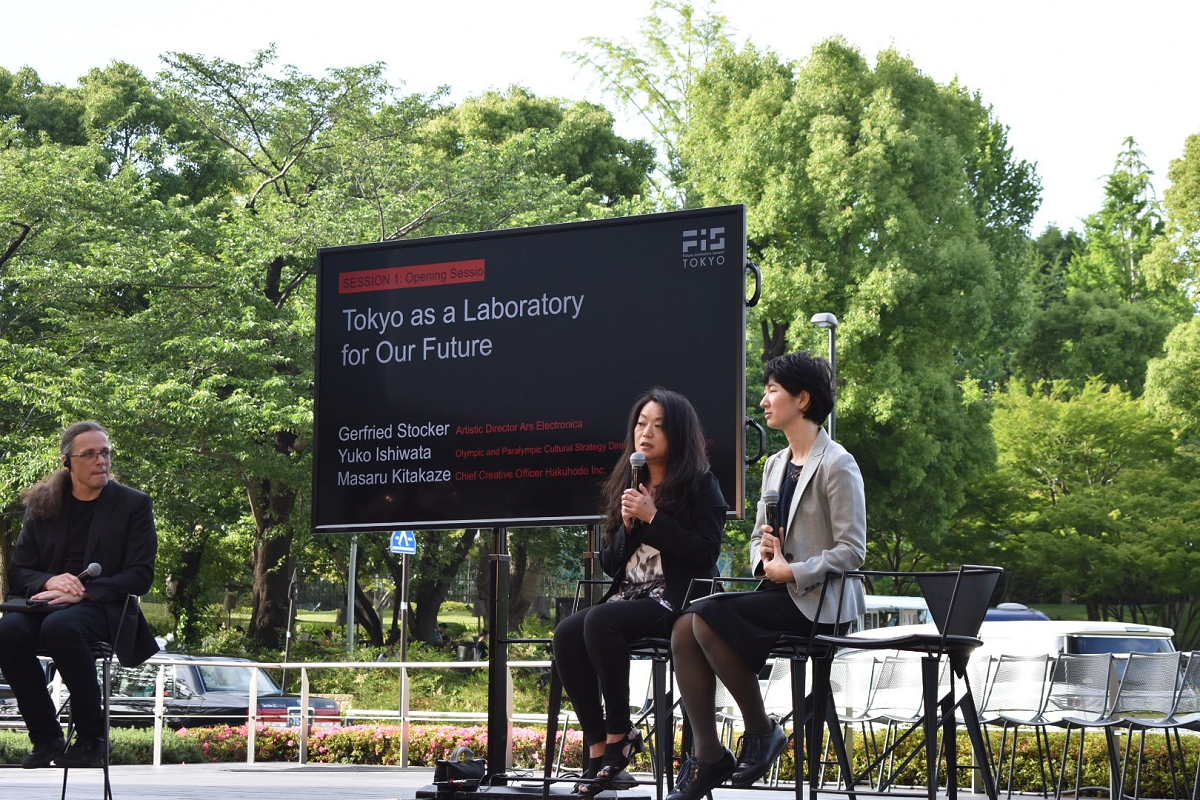 Yuko Ishiwata, Arts Council Tokyo (left)
Yuko Ishiwata, Arts Council Tokyo (left)About the significance of government support for the arts and culture, Yuko Ishiwata of Arts Council Tokyo said, “I think it is support for the unknown. It is supporting something where you don’t know what will happen next or what the outcome will be. As we just heard about raw gemstones, the unknown becomes a new value and eventually universal value. It can provide people with new stimulation and it can lead to the discovery of new value for cities. Accompanying these unknowns for the ride: that’s what supporting art means, I think.”
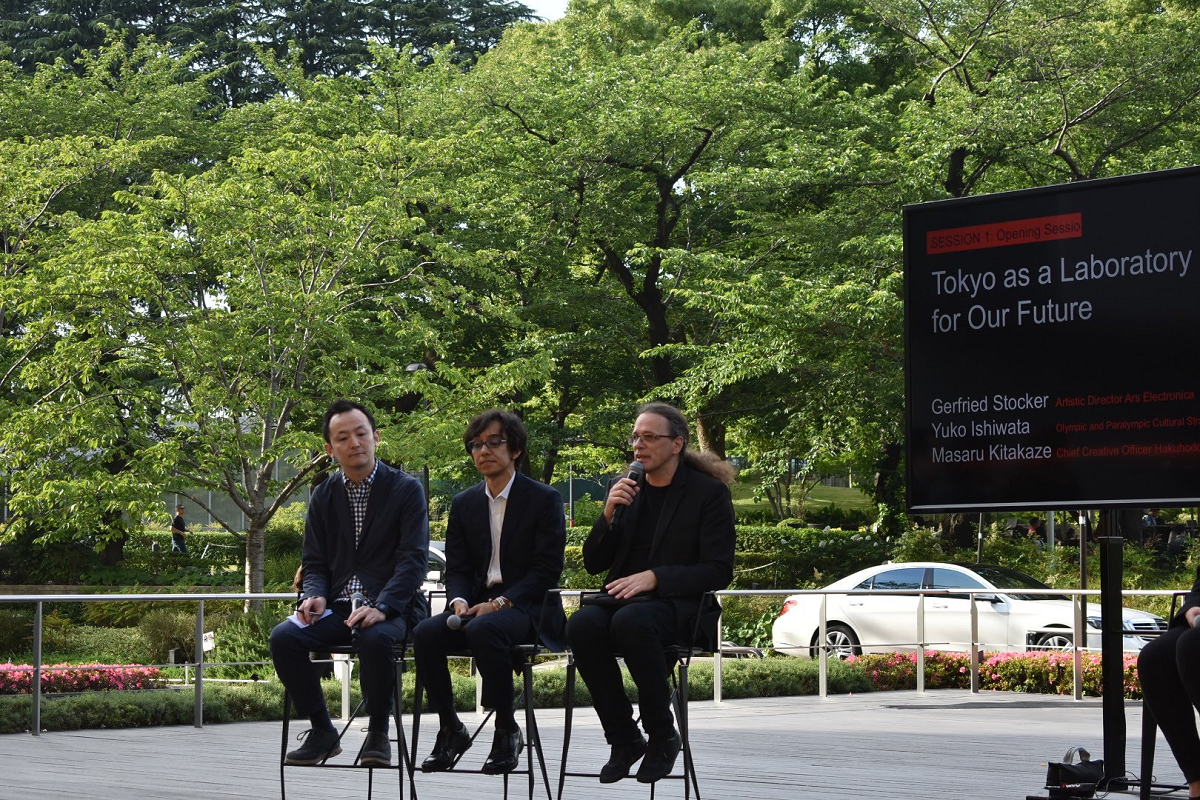 Gerfried Stocker, Artistic Director, Ars Electronica (right)
Gerfried Stocker, Artistic Director, Ars Electronica (right)Ars Electronica’s Gerfried Stocker said about the art that can be discovered at FIS TOKYO: “Previously, art was not about works of art per se, but a broader space (place), and art and artists created society. Art is, I believe, very beneficial to social solution innovation today. Collaborating with artists increases the possibility of encountering things we could not have imagined, and discovering good questions and opportunities.” Thus, he expressed the idea that art is important to society and industry today more than ever, as we face challenges that do not have ready solutions.
Finally, Kitakaze responded to Stocker as follows: “As Mr. Stocker said, the pervading image of artists is people who create works of art, but I like to think of them as practitioners. Artists, I think, are people who somehow give form to solutions to essential problems that they come across. When you think of artists this way, you can see that it is important when using Creative Questions to come up with multiple answers to think ahead to the giving of form to the solutions. It is by giving them concrete form that we can understand whether an idea is good or not. If we can cleverly utilize artists’ practitioner and form-making sides, I believe we can solve challenges faced by industry and by cities at a more advanced level.”
The opening session finished with an introduction to the three themes of FIS TOKYO, seguing into the talk show to follow.
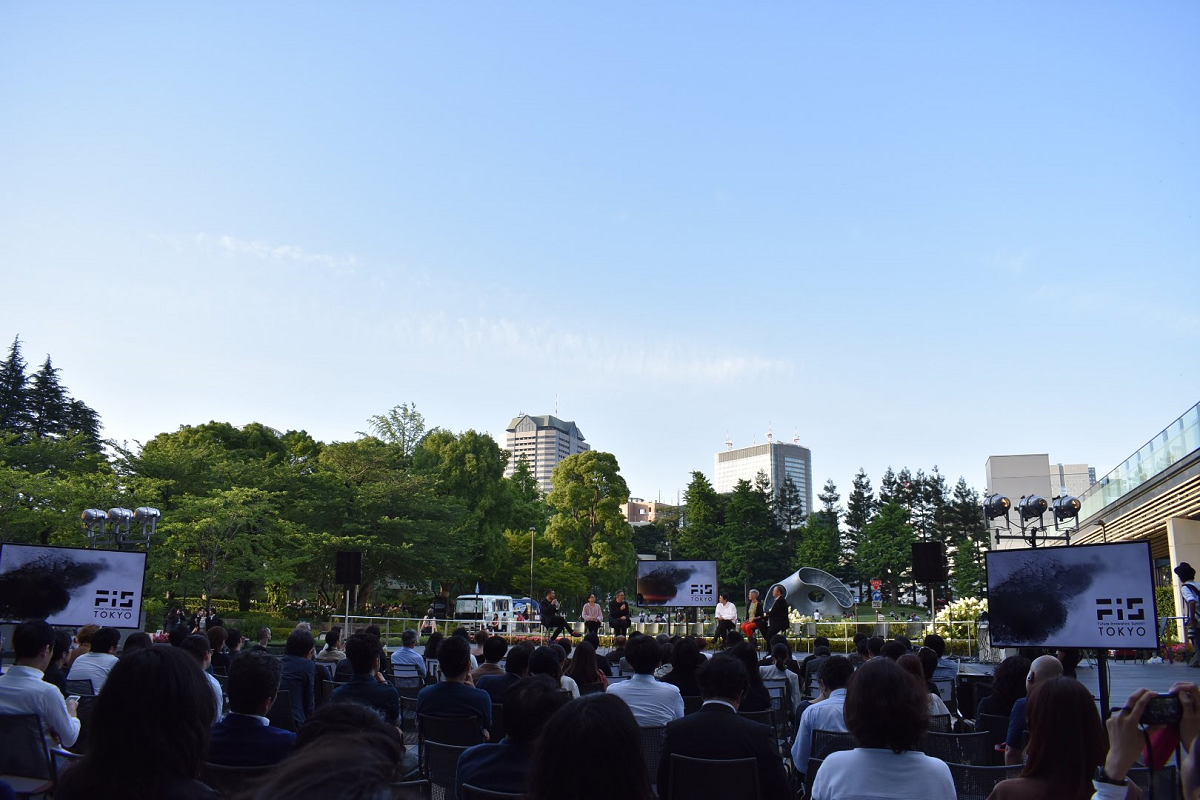
This was the first Future Innovators Summit TOKYO to be held in the Japanese capital. In the Tokyo Midtown courtyard, a verdant space in the center of the city, we saw people listening intently while taking notes at their seats, and people who were passing by and stopped to take in the proceedings. With the presenters asking questions for the future and an interested audience listening excitedly as a pleasant breeze blew over everyone, the environment itself impressed with its freshness.
From artists and scientists, to children and passersby, all kinds of people interacted together, taking home with them the sentiment-rocking stimuli and quiet questions sent out by FIS TOKYO, each as it struck them from their own particular standpoints. The event’s potential as a new forum for eliciting a variety of questions and answers toward solving the increasingly complex challenges faced by a city was palpable.













